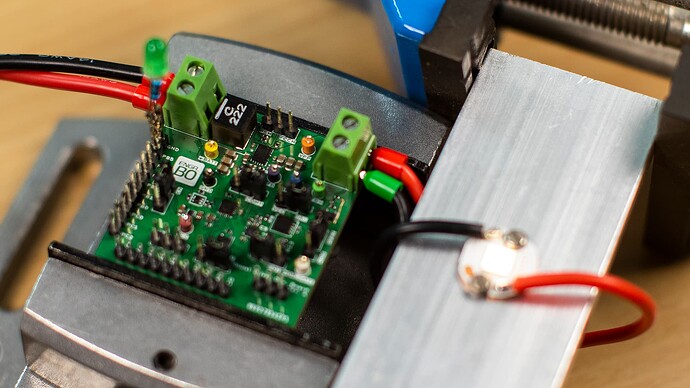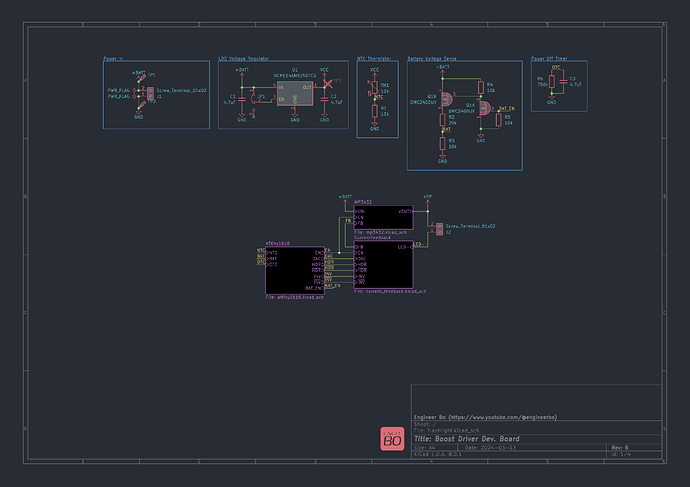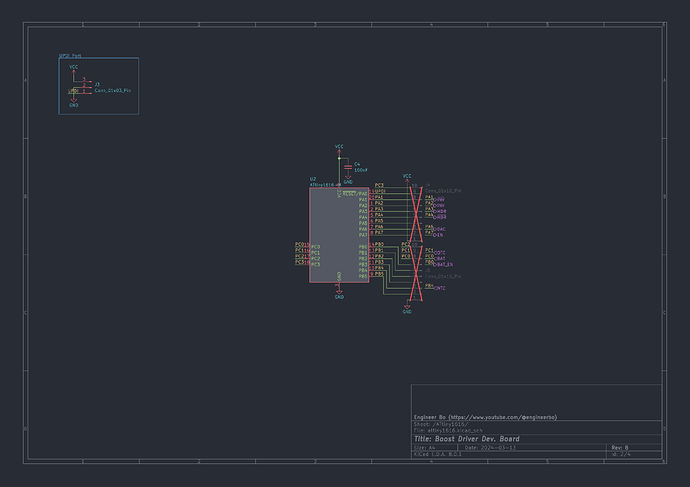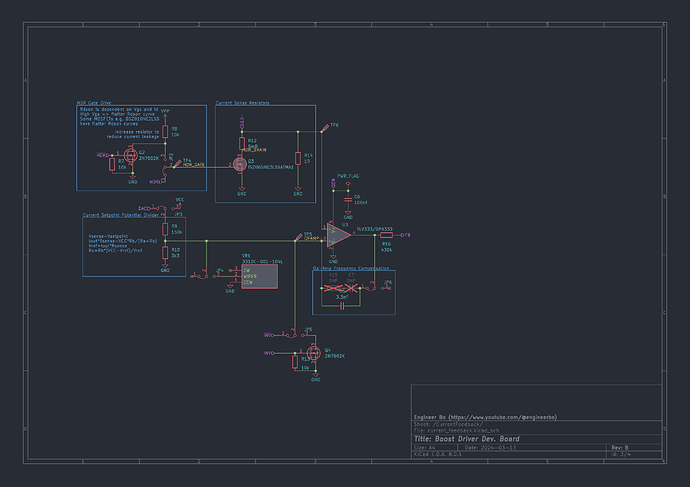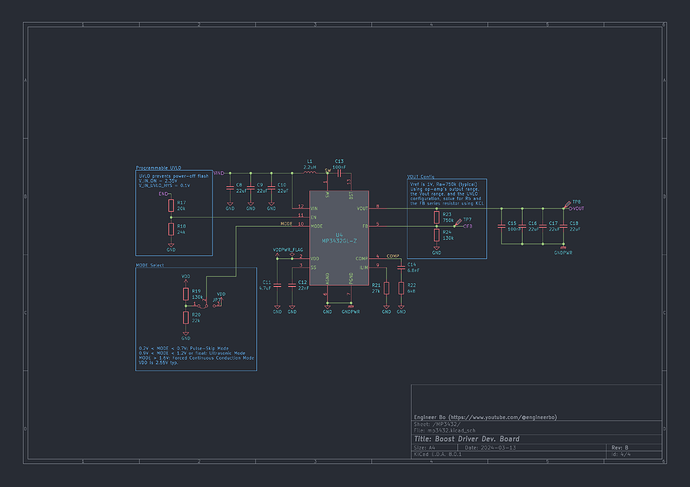Hello everyone,
Pictured: Dev board with XHP50.3 HI
I’ve made a post about this dev board a while back asking for help with the high pitch noise, and I received many helpful responses. With @thefreeman’s help, the noise is now even less audible, enough for me to to call it “practically silent”. I’d also like to thank @koef3 for the tests on XHP50.3 HI, which came in super useful when I was calculating component values.
In the time since, I’ve been documenting everything and editing a video to tie everything together.
Here an overview:
- ATtiny1616 MCU
- MP3432 boost converter
- Current regulation with op-amp, setpoint using ATtiny1616’s DAC
- High dynamic range (HDR) with two current sense resistors, theoretically up to ~1000 unique brightness settings
- Output is configured for XHP50.3 HI, up to ~5.4A max
- All the usual features: battery voltage sensing, temperature sensing, off-time estimation etc.
- Custom test firmware e.g. mode selection, smooth brightness ramping, dynamic VREF etc.
- Jumpers everywhere to try different things
Everything’s open source and can be found on GitHub. Here’s the link to the test firmware, and here’s the link to the hardware and everything else.
I’ve made a video series on YouTube which includes detailed explanations on the design, including the important calculations. I’ve just completed the first video in the series, so have a look if you like that kind of thing!
The test firmware is neither production ready nor feature complete, since it was written only for testing. It only supports this specific hardware build, so it’s (in my opinion) a lot more straightforward to read and understand. Still, it does all the basic things, like multi-click mode selection, smooth brightness ramping, temperature and battery voltage sensing etc.
The second repository is the catch-all repository, and contains hardware design files like the schematics and PCB layout, and the Python scripts used to calculate component values, brightness look-up tables etc. The hardware’s designed in KiCad, but I’ve made the schematics available in PDF form. To make it even more convenient, here’re the schematics:
This dev board is the first step in my quest to build a custom flashlight, so there’s a lot more to be done. I’m imagining a flashlight that’s:
- Compact/low-profile, but with replaceable batteries
- Possibly using StVZO optic (e.g. Ledil Filippa, which I have backordered)
- Efficient
I’m thinking the primary hurdle might be the battery choice. The boost driver can pull ~10A at maximum brightness, so smaller batteries like 10440 might have difficulties.
In the near future, I’ll be running some efficiency tests (I designed an efficiency tester board, to be assembled), then doing some CAD to see if I can come up with a decent design.
If anybody has any ideas or suggestions, please feel free to let me know!
Thank you for reading!
